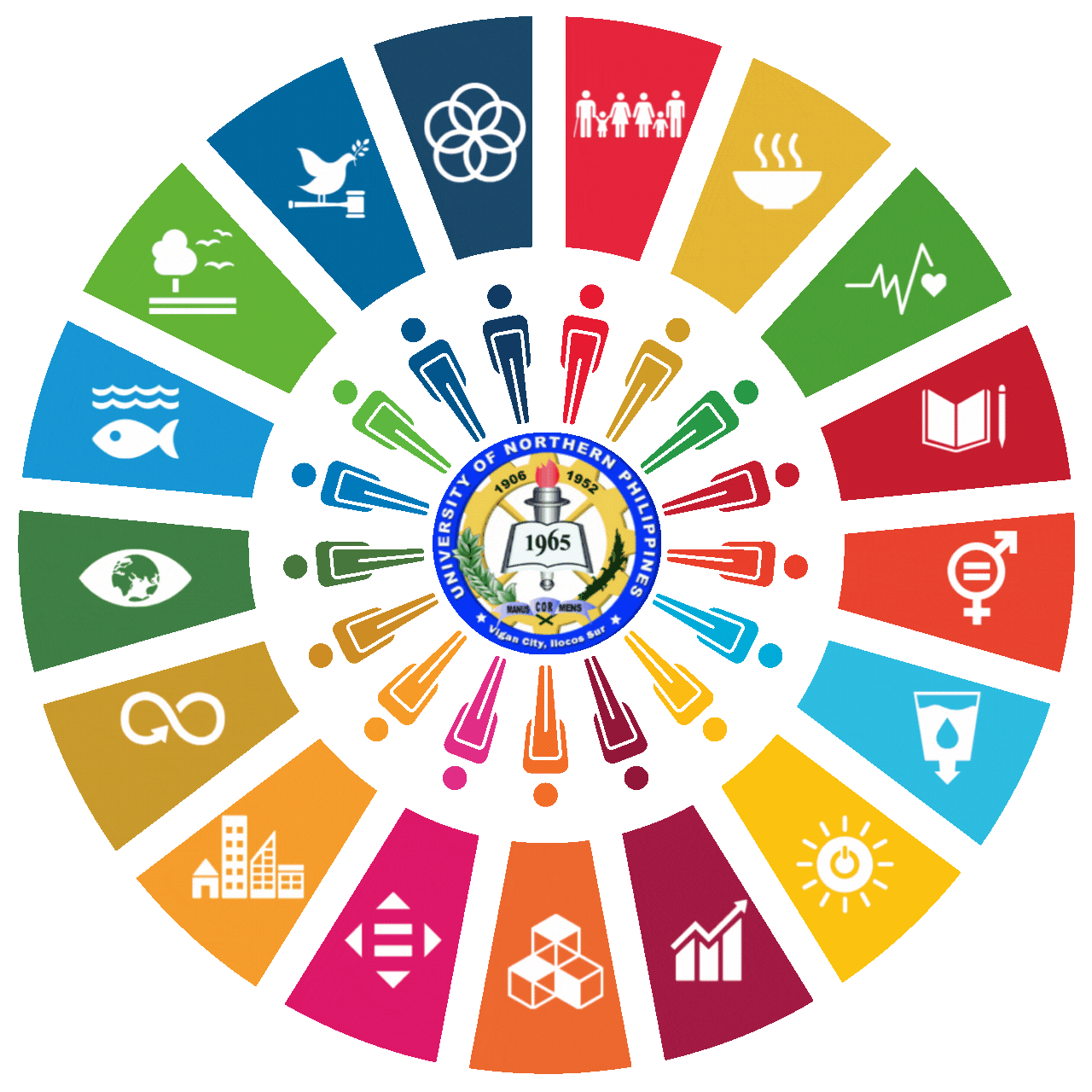
BRIEFER

SDG 12 - REPONSIBLE CONSUMPTION AND PRODUCTION
The University of Northern Philippines (UNP) manifests commitment to responsible consumption and production through initiatives covering waste management education, sustainable business practices, environmental campaigns, and cultural food preservation. UNP promotes environmental awareness and responsible consumption of natural resources through the university's Biological Society participation in World Earth Day celebrations, highlighting the interconnection between ecological health and sustainable consumption patterns. The Center for Gender and Development organized the "Orange Your Facade" contest promoting creative use of university spaces encouraging responsible consumption through innovative resource utilization. UNP was recognized in global sustainability rankings for commitment to responsible practices across the institution including consumption and production systems, demonstrating institutional leadership in sustainability. The university promoted National Statistics Month recognizing that data and statistics on production and consumption are crucial for monitoring progress towards responsible consumption and production goals.
UNP integrates sustainable practices into business and hospitality education preparing students to lead responsible industries. The College of Business Administration and Accountancy organized events including environmental initiatives promoting sustainable approaches to business operations and financial management. The College of Hospitality and Tourism Management initiated environmental campaigns promoting sustainable practices and responsible consumption within the hospitality sector, while reviving local cultural traditions related to food through puto and bibingka making, promoting consumption of locally sourced and traditional products that support local economies and reduce environmental footprints. Students won first place in the regional cooking challenge "Fish on Dish for a Bizz" focusing on local fish, promoting sustainable food consumption and local food systems while reducing reliance on imported ingredients. The College of Teacher Education conducted extension programs supporting local food producers with sustainable product labeling and packaging, promoting responsible production practices that meet regulatory standards while minimizing environmental impact.
UNP advances waste management and recycling initiatives through community education and institutional practices. The Department of Languages and Humanities and University Extension Office led recycling training and waste management seminars promoting responsible production and consumption practices within communities, equipping residents with knowledge and skills to reduce waste, properly segregate materials, and participate in circular economy systems. The College of Communication and Information Technology's outreach activities included sustainability initiatives highlighting the importance of responsible consumption in reducing environmental impact and conserving natural resources. These programs demonstrate UNP's commitment to extending sustainable practices beyond campus boundaries into surrounding communities, creating multiplier effects as trained community members become advocates for responsible consumption and waste reduction in their own neighborhoods and workplaces.
Through these initiatives spanning environmental awareness campaigns, sustainable business education, waste management training, local food systems promotion, and cultural preservation, UNP establishes that achieving responsible consumption and production requires coordinated efforts across education, community engagement, business innovation, and institutional practice. The university positions itself as a catalyst for sustainable consumption and production patterns in the Ilocos region, fostering a culture where students, faculty, and community members understand the environmental and social impacts of consumption choices and are equipped with knowledge and skills to make responsible decisions. By integrating sustainability principles into business, hospitality, and teacher education programs, UNP ensures that graduates enter professional fields prepared to implement responsible consumption and production practices, while community extension programs amplify impact by empowering residents with waste management skills, sustainable food production knowledge, and appreciation for locally sourced products that reduce environmental footprints and support regional economies. Read more
DLH, Extension Office lead recycling training, waste management seminar

CHTM revives cultural tradition through puto and bibingka making



















